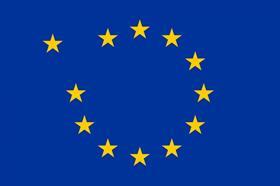
UK citizens have been hearing about the importance of the Brexit negotiations practically non-stop for over a year, but few will have learnt very much more than that – other than that they don’t seem to be going too smoothly.
We’ve heard vague, impenetrable statements from the government that “Brexit means Brexit” and that “No deal is better than a bad deal”, but what on earth does any of this actually mean?
According to Philippe Binard, general delegate of European fresh produce association Freshfel Europe, the negotiations are indeed ongoing, but at a far slower pace than anticipated.
“Consequently there are concerns that it might be difficult to conclude the negotiations in time, with serious implications for trade both ways,” he said. “This is probably why the UK side has started to suggest a prolongation. From what we are seeing here, the objective of the EU is to negotiate according to the time constraints. In my opinion, the reference to ‘no deal’ is mainly coming from the UK side.”
Binard revealed that the bilateral negotiations would in principle be handled in two stages. The first is to clarify the status of citizens in the EU-28, sort out the Irish border and agree the divorce bill. “There is no clear path on any of these three topics,” said Binard. “A round of negotiations is planned for this week, but last week the European Parliament raised concerns about the lack of progress, given all of this still has to be discussed.”
The second stage, he said, is the trade deal, with tariffs having to be renegotiated since the UK will no longer be part of the single market. This deal, according to Liam Fox, the UK’s secretary of state for international trade, should be “one of the easiest in human history” to negotiate. So, is it really so simple?
“It is likely that both the UK and the EU will be keen to have a broad base of tariff reduction,” explained Binard. “But from a trade facilitation perspective there are many other elements that could be a big burden for operators,such as the reintroduction of customs documents, procedures for customs clearing, capacity of logistics infrastructure, administrative paperwork and the modification of IT on both sides. All these are potential trade irritants that will have to be discussed in the negotiations to minimise the impact on trade.”
Besides these bilateral negotiations, there is also an extensive debate going on in Geneva where the UK will have to provide its WTO schedule.
“A replication of the EU external tariff is one option,” said Binard. “The setting of the UK schedule will also be the starting point for the UK’s future FTA negotiations with third country partners. In principle, as long as the FTA is not finalised, all suppliers to the UK market will have to pay the full external tariff on exports, as the UK will on its own exports. This will be the case for trade between the UK and EU-27, as well as for the UK with any third country partner, as the EU’s preferential trade deal with close to 50 countries will no longer apply to the UK. The UK will then have to renegotiate its deals one by one under the WTO terms and conditions.”
Another uncertainty to the talks is the future of Theresa May’s government, which remains precariously propped up by the far-right DUP in Northern Ireland while the prime minister continues to see her support haemorrhaging both across the country and within her own party.
Various reports suggest Eurocrats have stepped up talks with the opposition Labour Party led by Jeremy Corbyn over concerns May will soon be ousted from Number 10.



